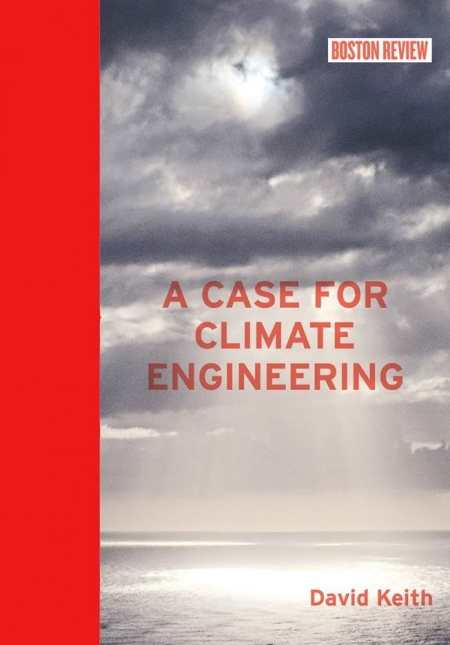A Case for Climate Engineering
A climate-science expert discusses a dramatic potential solution to climate change in a book written for the layman.
Harvard professor David Keith, an expert in climate science, doesn’t expect everyone to agree with his theory that solar geoengineering “could increase the productivity of ecosystems across the planet and stop global warming.” Rather, the purpose of his thoughtful and timely book “is simply to convince you that it’s a hard choice.”
Keith points out that fossil fuel combustion has resulted in enormous increases in carbon dioxide. He makes a reasoned argument that, if the world community were to take responsibility and be proactive, it could feasibly cut carbon dioxide emissions. But the author also suggests that, in the short term, geoengineering, which can be accomplished at a relatively reasonable cost, “could be used to cut the average rate of global warming in half for the next half-century.”
Perhaps the most interesting aspect of this small book is Keith’s smoothness in explaining geoengineering itself. He writes in simple language that can be understood by any reader. Keith’s ability to limit scientific jargon is admirable, as is his objectivity in presenting both sides of the argument. The author admits that solar geoengineering, which calls for “injecting reflective particles of sulfuric acid into the upper atmosphere” in order to create a cooling effect, could be dangerous if misused. Still, he favors “gradual deployment” because he believes the benefits outweigh the risks.
As with any good scientific treatise, Keith establishes his case and discusses the pros and cons in detail. What makes the book all the more interesting, however, is the fact that he openly and honestly discusses his own internal dilemma about geoengineering. While Keith generally supports it, he recognizes that it is not without risk. In discussing both the pros and cons, Keith is not only forthcoming about his own opinion, but he also exposes the reader to opposing views. This lends a great degree of credibility both to the book and to the author’s integrity.
In the end, Keith writes, “Climate change forces hard trade-offs.” He goes so far as to say that “geoengineering often seems a joyless choice between unpleasant alternatives.” When it comes to climate change, a topic that frequently seems to devolve into emotional arguments, Keith sounds like the adult voice of reason. One may or may not agree with his stand, but reading this finely crafted book is likely to enlighten one about some of the serious issues surrounding climate change.
Reviewed by
Barry Silverstein
Disclosure: This article is not an endorsement, but a review. The publisher of this book provided free copies of the book to have their book reviewed by a professional reviewer. No fee was paid by the publisher for this review. Foreword Reviews only recommends books that we love. Foreword Magazine, Inc. is disclosing this in accordance with the Federal Trade Commission’s 16 CFR, Part 255.

